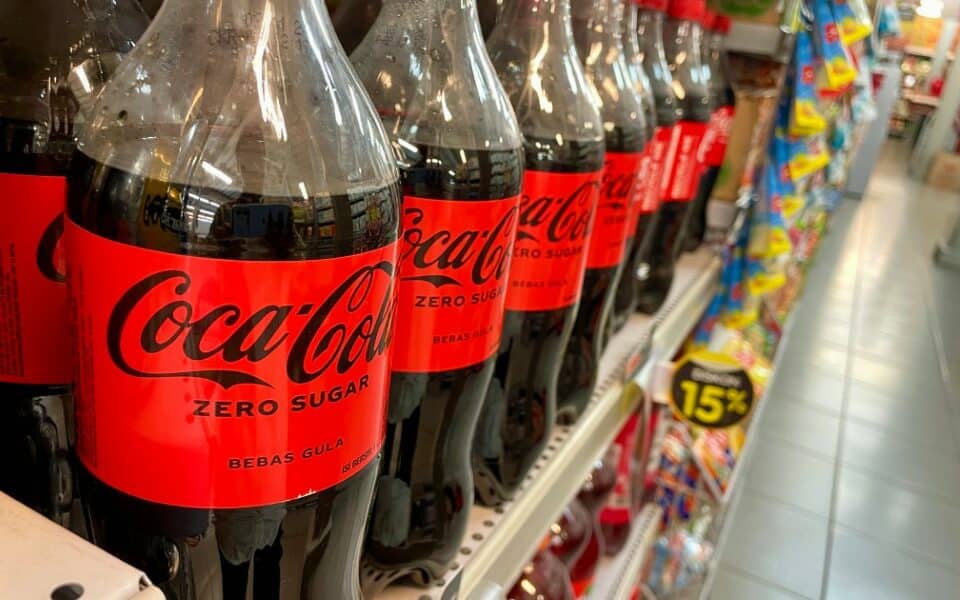Coca-Cola, one of the world’s largest beverage companies, has announced a significant recall of its products in several European countries due to the presence of elevated chlorate levels. The affected products include Coca-Cola, Sprite, Fanta, and Fuze, as well as their Light and Zero variants. The announcement was made on January 27, 2025, by the company’s European bottling plant in Belgium. While the issue has not impacted consumers in Germany, where the products were intended for export, the scope of the recall has raised concerns about food safety.
The recalled products have been distributed since November 2024 across Belgium, the Netherlands, France, Luxembourg, the United Kingdom, and Germany. The affected items primarily consist of cans and glass bottles identified with production codes ranging from “328 GE to 338 GE.” Coca-Cola has advised consumers not to consume these beverages and assured them that the products can be returned to stores for a full refund. Products that had not yet been sold have already been removed from shelves.
This recall follows another major incident just three months ago when Coca-Cola withdrew approximately 14 million liters of soda in Austria due to potential metal particles. The current situation underscores the critical need for stringent quality control in large-scale production operations, highlighting the challenges global companies face in maintaining product safety and consistency.
Details of affected products and consumer instructions
The recalled batches were produced and distributed with a focus on European markets, particularly Belgium and its neighboring countries. Coca-Cola stated that beverages with the specified production codes should not be consumed. To facilitate the refund process, consumers were instructed to return the products to the stores where they were purchased.
The affected beverages include the following brands and variants:
- Coca-Cola (including Light and Zero versions).
- Sprite.
- Fanta.
- Fuze.
- Other smaller Coca-Cola brands bottled in Belgium.
This recall reflects the company’s commitment to consumer safety while exposing internal process gaps that require immediate attention.
Understanding the risks of chlorate
Chlorate is a byproduct that forms when drinking water is treated with chlorine or during food processing. In small amounts, it is deemed safe for consumption. However, elevated levels can pose health risks, particularly to sensitive groups such as young children and individuals with preexisting health conditions.
Prolonged exposure to chlorate can impair the body’s ability to absorb iodine, potentially affecting thyroid function. According to the Federal Institute for Risk Assessment, repeated consumption of chlorate can lead to changes in hormone levels—a reversible condition but one that underscores the importance of strict limits on this compound in food and beverages.
Recent history of Coca-Cola recalls
This is not Coca-Cola’s first incident within a year. In October 2024, the company recalled around 14 million liters of soda in Austria, marking the largest food recall in the country’s history. The issue arose from a sieve breakage at a production facility, which could have resulted in metal particles contaminating the beverages.
The recalled soda was repurposed for biogas production, demonstrating an effort to minimize environmental impact. However, the situation sparked discussions about the effectiveness of the company’s internal quality control processes, which appear to face recurring challenges in ensuring product integrity.
Impact of the recall on European markets
Belgium, as the production hub for the affected batches, was the most impacted country. However, the recall extended to neighboring markets such as France, Luxembourg, and the Netherlands, which rely on the regional distribution network. Additionally, the United Kingdom also reported the presence of affected products, further amplifying the scale of the incident.
For consumers, the recall has raised concerns, particularly due to the lack of detailed information about the exact quantities of products affected. Retailers had to reorganize inventory and manage an influx of returns, while European food authorities closely monitored Coca-Cola’s actions to ensure compliance with safety regulations.
Preventive measures announced by Coca-Cola
In response to the incident, Coca-Cola has announced additional measures to strengthen its quality control processes and prevent similar issues in the future. The planned actions include:
- Revising production protocols with a focus on disinfection practices and chemical monitoring.
- Installing real-time sensors for detecting compounds like chlorate.
- Increasing the frequency of internal audits at the company’s European facilities.
- Partnering with suppliers to ensure the quality of raw materials used in production.
These steps reflect the company’s effort to rebuild consumer trust and align its operations with the rigorous food safety standards required in global markets.
Insights and lessons from previous recalls
- The 14-million-liter recall in Austria remains a landmark event for the European food industry.
- Chlorate, though considered harmless in small amounts, can pose cumulative health risks when present in high concentrations.
- Recalls by major brands like Coca-Cola often reveal gaps in regulatory processes and supply chain management.
Tips for consumers in recall situations
- Regularly check announcements for production codes and batches affected by recalls.
- Keep purchase receipts for food and beverages to simplify refunds if products are recalled.
- If you have consumed a recalled product, monitor for any unusual symptoms and seek medical advice if necessary.
- Stay informed about the quality standards of the brands you consume and demand transparency.
- Support sustainable initiatives during recalls, such as recycling or environmentally responsible disposal of affected products.
The impact on Coca-Cola’s reputation
Despite being one of the world’s most recognizable brands, Coca-Cola has faced growing challenges in maintaining its reputation. Recent recalls have drawn criticism about the efficiency of its quality control systems, but they also highlight the company’s proactive efforts to protect consumers. Transparency in communications and the implementation of corrective measures are crucial for minimizing damage to the brand’s image.
The financial implications of the recall, while significant, are secondary to the importance of consumer trust, which remains Coca-Cola’s most valuable asset. The company will need to invest in marketing campaigns and preventive initiatives to reinforce its position as a leader in the beverage industry.

Coca-Cola, one of the world’s largest beverage companies, has announced a significant recall of its products in several European countries due to the presence of elevated chlorate levels. The affected products include Coca-Cola, Sprite, Fanta, and Fuze, as well as their Light and Zero variants. The announcement was made on January 27, 2025, by the company’s European bottling plant in Belgium. While the issue has not impacted consumers in Germany, where the products were intended for export, the scope of the recall has raised concerns about food safety.
The recalled products have been distributed since November 2024 across Belgium, the Netherlands, France, Luxembourg, the United Kingdom, and Germany. The affected items primarily consist of cans and glass bottles identified with production codes ranging from “328 GE to 338 GE.” Coca-Cola has advised consumers not to consume these beverages and assured them that the products can be returned to stores for a full refund. Products that had not yet been sold have already been removed from shelves.
This recall follows another major incident just three months ago when Coca-Cola withdrew approximately 14 million liters of soda in Austria due to potential metal particles. The current situation underscores the critical need for stringent quality control in large-scale production operations, highlighting the challenges global companies face in maintaining product safety and consistency.
Details of affected products and consumer instructions
The recalled batches were produced and distributed with a focus on European markets, particularly Belgium and its neighboring countries. Coca-Cola stated that beverages with the specified production codes should not be consumed. To facilitate the refund process, consumers were instructed to return the products to the stores where they were purchased.
The affected beverages include the following brands and variants:
- Coca-Cola (including Light and Zero versions).
- Sprite.
- Fanta.
- Fuze.
- Other smaller Coca-Cola brands bottled in Belgium.
This recall reflects the company’s commitment to consumer safety while exposing internal process gaps that require immediate attention.
Understanding the risks of chlorate
Chlorate is a byproduct that forms when drinking water is treated with chlorine or during food processing. In small amounts, it is deemed safe for consumption. However, elevated levels can pose health risks, particularly to sensitive groups such as young children and individuals with preexisting health conditions.
Prolonged exposure to chlorate can impair the body’s ability to absorb iodine, potentially affecting thyroid function. According to the Federal Institute for Risk Assessment, repeated consumption of chlorate can lead to changes in hormone levels—a reversible condition but one that underscores the importance of strict limits on this compound in food and beverages.
Recent history of Coca-Cola recalls
This is not Coca-Cola’s first incident within a year. In October 2024, the company recalled around 14 million liters of soda in Austria, marking the largest food recall in the country’s history. The issue arose from a sieve breakage at a production facility, which could have resulted in metal particles contaminating the beverages.
The recalled soda was repurposed for biogas production, demonstrating an effort to minimize environmental impact. However, the situation sparked discussions about the effectiveness of the company’s internal quality control processes, which appear to face recurring challenges in ensuring product integrity.
Impact of the recall on European markets
Belgium, as the production hub for the affected batches, was the most impacted country. However, the recall extended to neighboring markets such as France, Luxembourg, and the Netherlands, which rely on the regional distribution network. Additionally, the United Kingdom also reported the presence of affected products, further amplifying the scale of the incident.
For consumers, the recall has raised concerns, particularly due to the lack of detailed information about the exact quantities of products affected. Retailers had to reorganize inventory and manage an influx of returns, while European food authorities closely monitored Coca-Cola’s actions to ensure compliance with safety regulations.
Preventive measures announced by Coca-Cola
In response to the incident, Coca-Cola has announced additional measures to strengthen its quality control processes and prevent similar issues in the future. The planned actions include:
- Revising production protocols with a focus on disinfection practices and chemical monitoring.
- Installing real-time sensors for detecting compounds like chlorate.
- Increasing the frequency of internal audits at the company’s European facilities.
- Partnering with suppliers to ensure the quality of raw materials used in production.
These steps reflect the company’s effort to rebuild consumer trust and align its operations with the rigorous food safety standards required in global markets.
Insights and lessons from previous recalls
- The 14-million-liter recall in Austria remains a landmark event for the European food industry.
- Chlorate, though considered harmless in small amounts, can pose cumulative health risks when present in high concentrations.
- Recalls by major brands like Coca-Cola often reveal gaps in regulatory processes and supply chain management.
Tips for consumers in recall situations
- Regularly check announcements for production codes and batches affected by recalls.
- Keep purchase receipts for food and beverages to simplify refunds if products are recalled.
- If you have consumed a recalled product, monitor for any unusual symptoms and seek medical advice if necessary.
- Stay informed about the quality standards of the brands you consume and demand transparency.
- Support sustainable initiatives during recalls, such as recycling or environmentally responsible disposal of affected products.
The impact on Coca-Cola’s reputation
Despite being one of the world’s most recognizable brands, Coca-Cola has faced growing challenges in maintaining its reputation. Recent recalls have drawn criticism about the efficiency of its quality control systems, but they also highlight the company’s proactive efforts to protect consumers. Transparency in communications and the implementation of corrective measures are crucial for minimizing damage to the brand’s image.
The financial implications of the recall, while significant, are secondary to the importance of consumer trust, which remains Coca-Cola’s most valuable asset. The company will need to invest in marketing campaigns and preventive initiatives to reinforce its position as a leader in the beverage industry.







